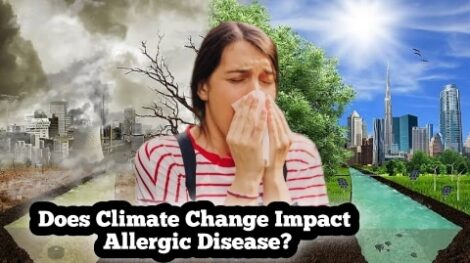Earlier each year, do you seek for your allergy medications. Do you experience the sniffles more frequently now than you used to? You’re not dreaming it; your allergies are causing you to feel miserable for longer than normal. Nevertheless, a changing climate is to blame.
Seasonal allergies typically endure from early spring to late fall, but warmer temperatures and changing seasonal patterns linked to climate change and greenhouse gas emissions are lengthening allergy season and having an adverse effect on respiratory health. But is your nose prepared? According to scientists, the nose is your body’s first line of protection against allergens. Also, specialists report that since there are more pollen grains in the air, people are now more susceptible to getting colds in the winter, which increases the density of allergens.
that can overpower the nose’s protections.
Symptoms including sneezing, congestion, itchy eyes, exhaustion, and coughing follow as a result. According to a climate Central analysis, the links between climate change and seasonal allergies are becoming more and more obvious. Warming temperatures and more days without freezing point to an increase in atmospheric carbon dioxide. With more allergens in the air, the allergy season is growing longer and more powerful due to climate change. If you have the seasonal flu, you’re not alone. The question is how to handle the issue.
Health professionals advise scheduling a visit with your doctor and starting your allergy medication early because it may take four to five days for the medication to start working and reducing your symptoms. They also advise wearing masks, which are extremely important and effective at preventing inhalation of mould and pollen spores.
ALSO READ THIS: Are FOOD GRAINS reaching Africa?

